Son of Saul is one of the most difficult and uncomfortable films I’ve ever seen. I watched it twice. When it opens in theaters this week, I’m likely to go see it again just to have the experience with an audience. This is certain to be a polarizing film, and those seeking life-affirming positivity from their movies need look elsewhere, as this film makes Schindler’s List look like Weekend at Bernie’s. But for those with an interest in understanding the horrors of the Holocaust on a visceral human level, Son of Saul is mandatory viewing.
Following a member of the Sonderkommando, a group of Jews who assisted in the extermination of their fellow concentration camp inmates under threat of death, Son of Saul examines one of the most heart-wrenching and seldom discussed aspects of the Holocaust. Whereas most films on the subject try to inject some modicum of hope or a saccharine message of survival and humanity to make the proceedings more palatable, Saul gives the audience no quarter. Short of watching all nine-and-a-half hours of Shoah, no better explication of the dehumanization inflicted on European Jews under the Nazis has been committed to film.
The script, penned by director László Nemes with Clara Royer, takes some bold narrative risks. While there is a remote semblance of a three-act structure, the story is more concerned with affect than mechanics. Calling to mind Dante’s descent through Hell, Saul (Géza Rörig) faces incomprehensibly harrowing experiences in his journey through Auschwitz-Buchenwald to find a Rabbi to bury his son. Of course, the film pointedly confronts the audience with the possibility that Saul may not have had a son in the first place, and this ambiguity is left to the viewer to ponder after the credits roll. But this vagary, along with Saul’s apparently limited understanding of Orthodox Jewish funerary rites, serves to underscore the film’s central premise: What can survive of a man’s soul when he is stripped of all human dignity and assured an inevitable death?
Son of Saul is a film focused on form, almost to a fault. Shot entirely in close-up (with the exception of two notable scenes) and with a minimum of cutting, Saul forces the audience immediately and inescapably into a state of empathy with a protagonist who is not particularly likable or competent, and therefore unpleasantly relatable. From the first long-take following Saul as he ushers faceless men and women into the gas chambers, the viewer is compelled into complicity with unspeakable crimes and unfathomable suffering. The director’s choice to film in the Academy Ratio, as well as his aforementioned adherence to the close-up, deprives the viewer of periphery and depth of field, lending a sense of immediacy and claustrophobia to each composition. Each frame seems engineered for concealment, parsing out the slightest suggestions of contextual horrors that the audience is trusted to fill in with their imagination. The resultant film plays something like Dreyer’s The Passion of Joan of Arc-meets-early-’60s-cinéma-vérité starring Jean-Paul Belmondo on the worst day of his life (Belmondo look-alike jokes aside, leading man Röhrig does more with the back of his head than most performers accomplish with their entire body). Were the script slightly less adroit and the performances less sincere, the whole enterprise would’ve floundered from the outset, but instead the film’s constituent pieces come together to create a unified whole far greater than the sum of its parts.
As much as I liked Son of Saul, it’s difficult for me to articulate exactly why. By some standards it’s an ugly film, both visually and thematically, and to say the subject matter is difficult would be putting things far too mildly. But to risk pretension, the idea that I keep circling is that this is an important film. Prior attempts have been made to place an audience in contact with the psychological desperation and desolation that must have characterized the business end of the Nazis’ final solution, but I doubt such attempts have produced such an uncompromisingly affective experience. Son of Saul seems destined to take its place in the upper echelons of the Holocaust canon, and deservedly so. Go see it. Rated R for disturbing violent content, and some graphic nudity.



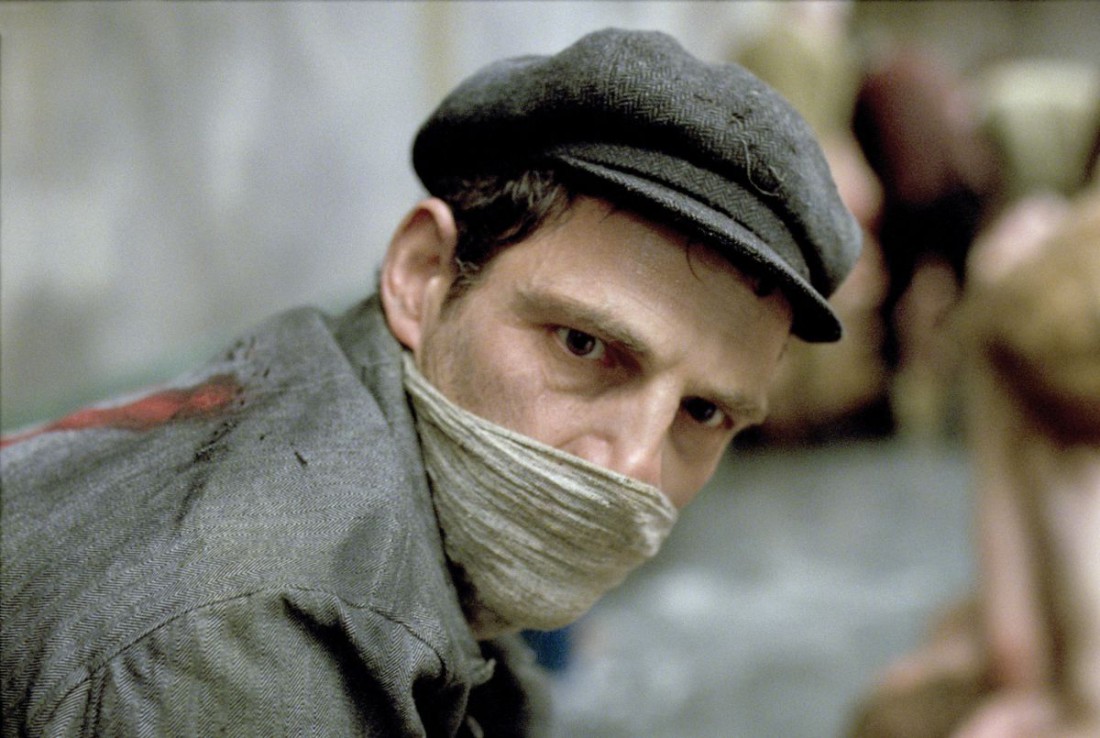
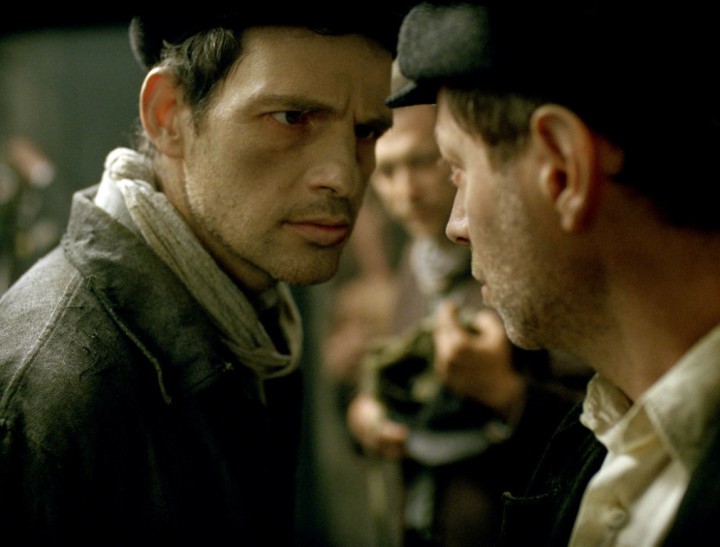
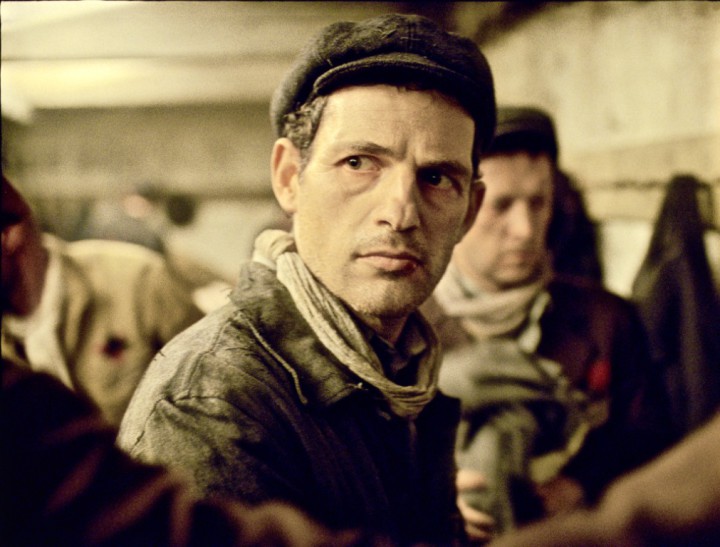
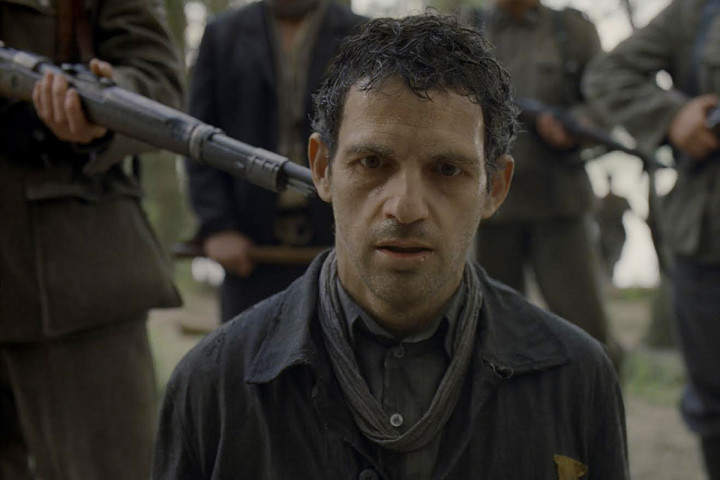
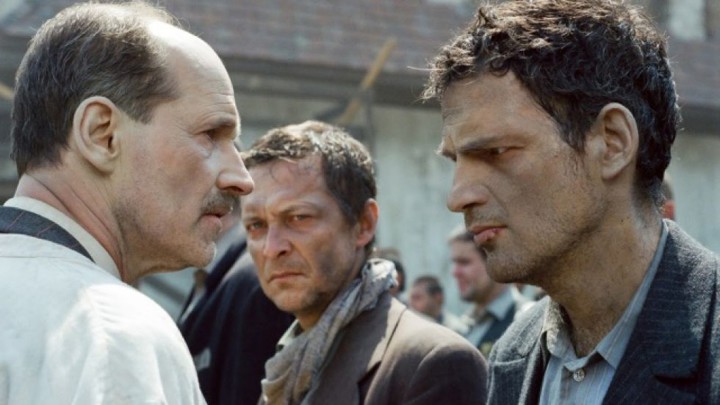
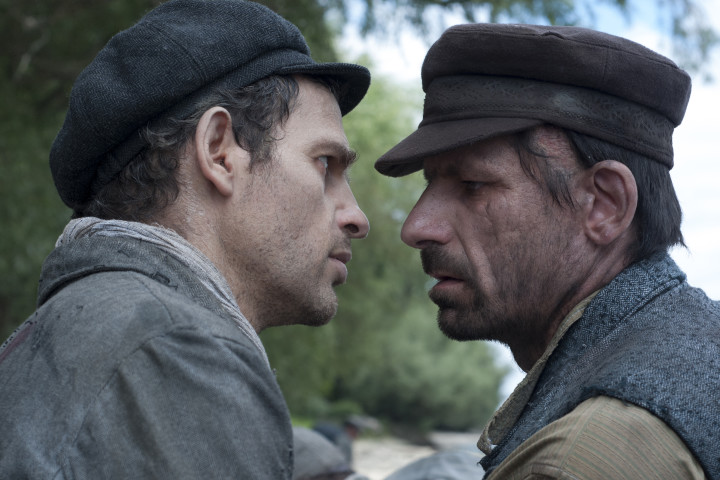
So happy Asheville is getting this one, Ive been looking forward to seeing it.
A great film but difficult to sit through. There were people sobbing at the showing I attended. I’m curious what Scott thought of an earlier, similar film, “The Grey Zone” from a few years back.
Unfortunately I have yet to see that one.
Great review. Watching this film was a powerful and important experience for me, and I am grateful to the filmmakers for it. It’s made with such craft and artisan ship. Unlike Schindler’s List (and pop culture in general), it doesn’t simplify and sanitize the holocaust into heroes, victims and monsters, but confronts us with the messy, hopeless, confusing terror that actually happened for individuals, along with what strange and complex parts of us that stay alive in the face of such hopelessness.
Well, not that I would know…..
Haha, this really tickles me.
” Geza Rohrig, who has received much praise for his portrayal of Auslander, said the Oscar ceremony “was a near clinical case of idiocy.”
“It’s not my world,” said Rohrig, adding the volunteer seat fillers used to ensure there are never any empty seats during the ceremony “looked like a long line at the Lenin Mausoleum.” “